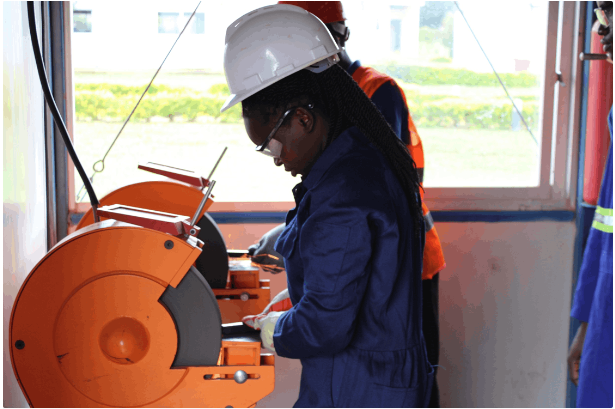
As fresher students across the world start their first day at university this month, Uganda is welcoming a record number of female students who are breaking gender stereotypes by studying oil and gas technical subjects such as welding.
have revealed a 20 percent jump from two years ago in the number of women now enrolling at the Uganda Petroleum Institute in its practical courses to work in the oil and gas industry, the highest percentage ever witnessed in the country, as young people seek to get the qualifications required to provide technical skills to the country’s growing oil and gas sector.
In total some 4,000 Ugandan men and women are presently studying engineering at the country’s universities and technical institutes, with a growing number of the places financed directly by the government and the oil companies working in the country to ensure the country’s skill set expands to meet the sectors rising demand.
Tony Kato, President of Uganda’s Society of Petroleum Engineers, welcomed the increased number of students focusing on engineering and highlighted how the oil and gas boom was helping drive the numbers.
He said: There is excitement in Uganda at present around the opportunities that the oil and gas development is bringing, and we can see this in the number of young people wanting to get involved. Under our legislation, oil and gas companies are legally required to employ Ugandans and they should be holding all leadership positions by 2040. Therefore, there are huge opportunities here for the students of today to become the industry leaders of tomorrow, whatever sex they are.
Although the number of Ugandan engineers who were female has historically been lower, women have still risen to the top in the sector of the company. The Uganda National Oil Company is headed by Ms. Proscovia Nabbanja, a geologist with several degrees in petroleum sciences.

